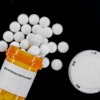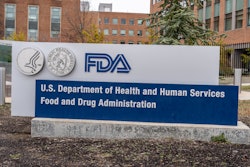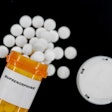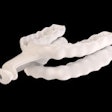The U.S. Food and Drug Administration (FDA) hearing on July 23 to collect feedback on the clinical use and safety concerns associated with prescription fluoride supplements for kids revealed supporters and opponents, but the writing may be on the wall for cavity-fighter.
Dr. George Tidmarsh, PhD, director of the U.S. Center for Drug Evaluation and Research, not only remarked that fluoride supporters’ presentations lacked the robust scientific data that opponents provided, but he didn’t seem sold on the benefits, noting supplements have never undergone the careful FDA process determining whether the benefits outweigh the risks.
“If we decide to take sodium fluoride supplements off the market, there’s nothing that would prevent a group from doing the rigorous studies and bringing it back to the FDA,” Tidmarsh said. “OK, so it doesn’t mean it’s over, and I want to make sure that’s really clear.”
In May, the FDA announced that it aimed to remove orally ingestible unapproved products containing fluoride that are prescribed for children from the market. The agency suggests that these ingestible fluoride products, which often are given to children at high risk of tooth decay, may alter the gut microbiome and possibly are associated with weight gain, thyroid disorders, and a decrease in IQ.
Dr. Bill Osmunson, MPH, a retired dentist from the antiwater fluoridation organization Fluoride Action Network, who admitted to prescribing fluoride for decades until he “saw the science,” argued that poor children experience high rates of tooth decay regardless of the fluoride they receive.
“Over the last 20 to 25 years, whether you have fluoride or not or a supplement or not, it doesn’t matter,” Osmunson said. “It’s a hoax.”
Osmunson argued that supplements are a bad idea because clinicians can’t know every source of fluoride a person is getting before a supplement is prescribed. At one point, he interrogated supporters, asking what type of questions they ask patients before they prescribe supplements.
Dr. James H. Bekker of the University of Utah School of Dentistry, who strongly recommended that fluoride supplements continue to be a tool for clinicians, responded that he asks where patients live, go to school, whether they are taking supplements, and whether they swallow fluoride toothpaste before prescribing supplements.
Osmunson snapped back, “You really ask all those questions? Do pediatricians ask these questions?”
The meeting moderator cut off Osmunson, reminding him that the discussion wasn’t an interrogation.
Osmunson responded, “Not possible to determine how much a patient is getting.”
Bekker added that there has been discussion that no one knows what dosage of fluoride is safe but said that evidence is available.
“Supplements are just one tool,” Bekker said. “Any data that refutes the benefits of fluoride are either flawed or taken out of context.”
After this portion of the hearing was concluded, Tidmarsh said, “If we decide to take it off the market, we would absolutely come to the dental and pediatric community to look about [things] that everybody agreed on -- sugar, other things on the diet, other things that can help [prevent caries].”
In May, the FDA stated that it hoped to conclude its evaluation of these products by October 31.




















